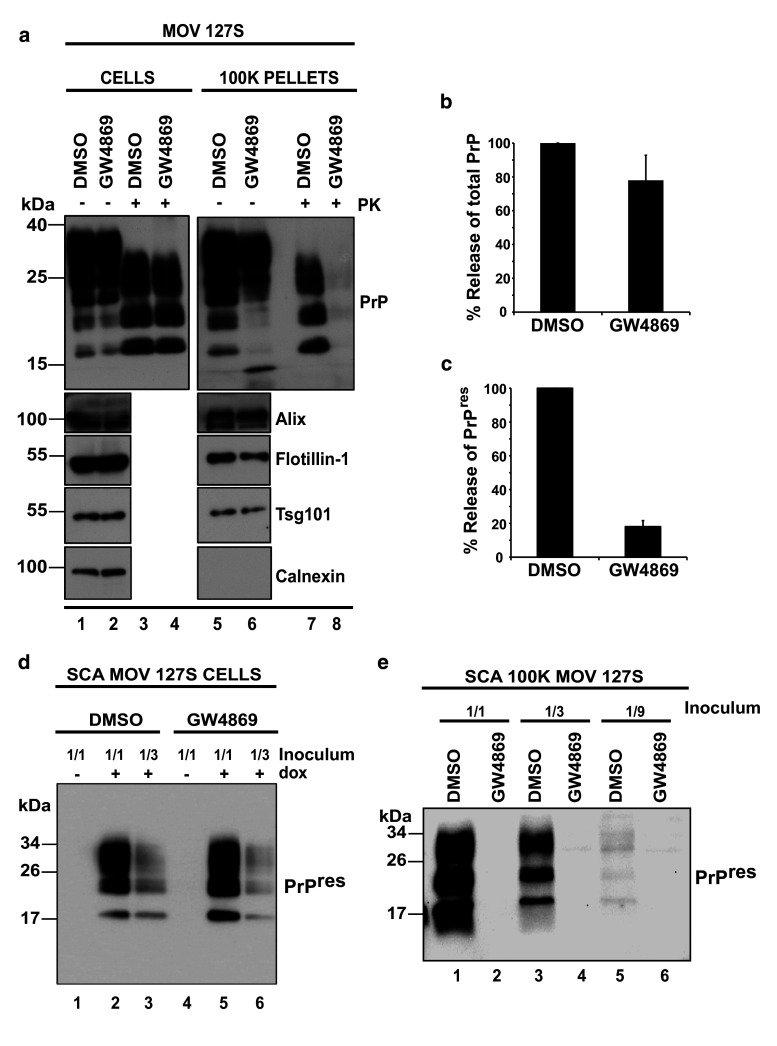Fig. 7.
The neutral Sphingomyelinase inhibitor GW4869 strongly reduces prion infectivity release. a Mov 127S cells were incubated with the diluent (DMSO, negative control; lanes 1 and 3) or with the neutral Sphingomyelinase inhibitor GW4869 (10 μM; lanes 2 and 4) for 26 h. Cells were recovered and the 100 K pellets were harvested from the corresponding culture supernatants. Cell lysates and the 100 K pellets were immunoblotted before (−) and after (+) PK digestion for PrP, Alix, Flotillin-1 or Tsg101 (exosomal proteins) and Calnexin (non-exosomal protein). PrPres was no longer detected in the 100 K pellets from GW4869-treated cells (compare lanes 7 and 8), suggesting inhibition of release. b Percentage of total PrP in the 100 K pellets from DMSO/GW4869-treated cells. The data are representative of three independent experiments. Values are given as mean ± SD. Note that total PrP release is marginally affected in GW4869 treated cells. (c) Percentage of PrPres in the 100 K pellets from DMSO/GW4869 treated cells. The data are from three independent experiments. Values are given as mean ± SD. Note the strong decrease of PrPres release in GW4869-treated cells. d Prion infectivity associated with cells, as revealed by the SCA. SCA was performed with 1/1 and 1/3 homogenate dilutions (corresponding to 30 and 10 μg of cellular proteins) of DMSO- and GW4869-treated Mov 127S cells. DMSO- (lanes 2 and 3) or GW4869-treated cells (lanes 5 and 6) were used to infect ovRK13 target cells. Four weeks later, inoculated cells were recovered and lysates were PK-digested and analyzed for PrPres. No PrPres was detected when recipient ovRK13 cells that did not express the PrPC protein (-dox) were inoculated (lanes 1 and 3). e Experiments similar to (d) were carried out with the 100 K pellets. Decreasing amounts (1/1, 1/3 and 1/9) of the 100 K pellets (corresponding to 450, 150 and 50 μl of conditioned medium) from DMSO (lanes 1, 3 and 5) or GW4869 (lanes 2, 4 and 6) treated Mov 127S cultures were used to inoculate recipient permissive uninfected ovRK13 cells. Four weeks later, inoculated cells were recovered and lysates were PK-digested and analyzed for PrPres. Note that GW4869 strongly impairs the release of infectivity

